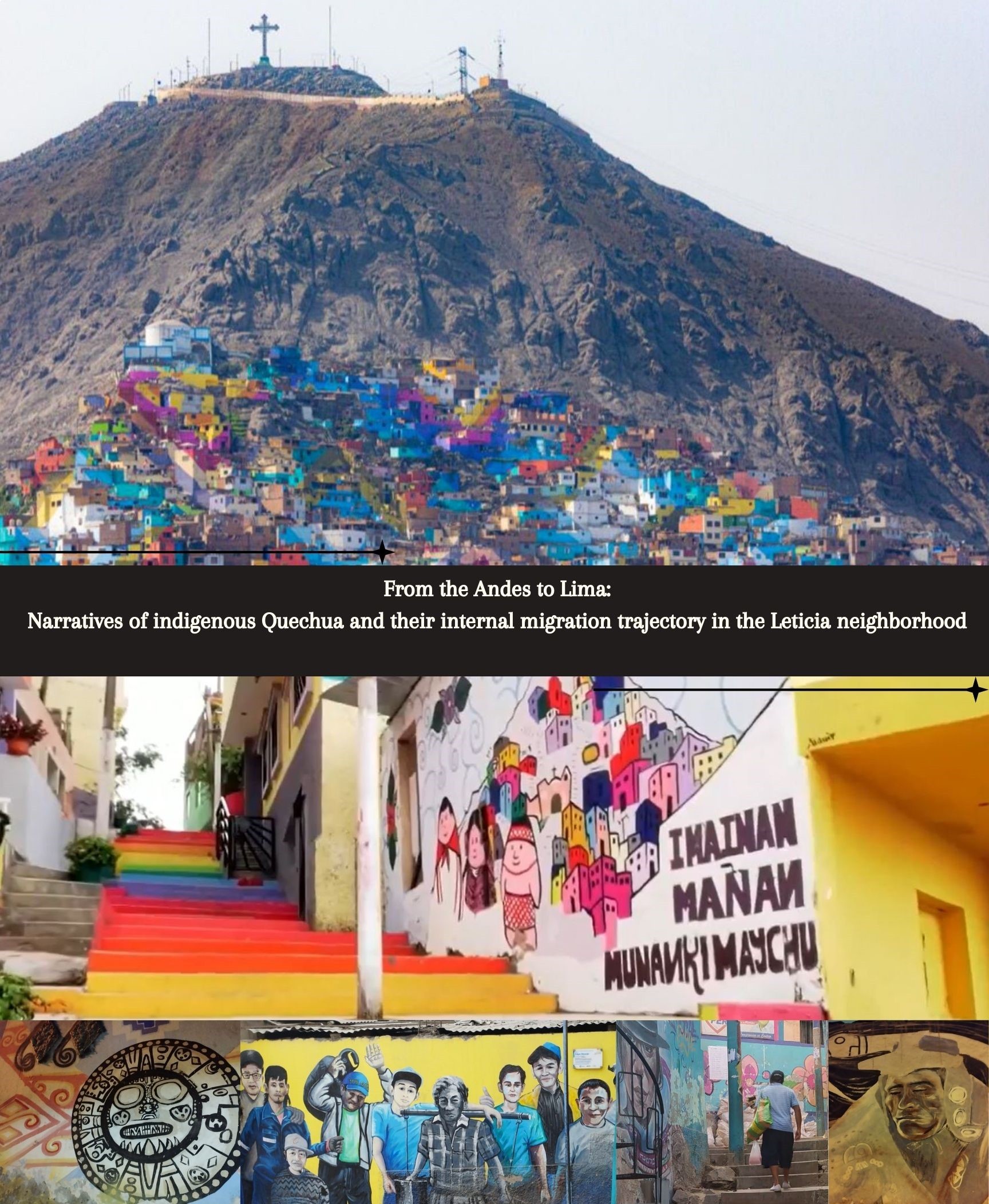Indigenous Learning Forum: "From the Andes to Lima: Narratives of indigenous Quechua migrants and their internal migration trajectory." with Jacqueline S. Campo

The fourth 2023-2024 Indigenous Learning Forum will take place February 15, 2024 at 3:00 p.m. ET on Zoom. Spanish interpretation will be provided.
NOTE: These programs are designed as spaces for sharing ideas and works still in-progress. For this reason, this event will not be recorded. This event is open to all but registration is required.
Jacqueline S. Campo is a Quechua heritage second-year Ph.D. student in Applied Linguistics at the University of Massachusetts Boston. She holds a MA in Applied Linguistics with a concentration in bilingual education and foreign language pedagogy and a BA in Linguistics at the National University of San Marcos, Peru. Her research interests are language navigation in relation to indigenous identities in urban and immigrant spaces. Specifically, her work aims to raise awareness about the Quechua and Andean cultures as well as to contribute to the revitalization of the Quechua language.
This study explores the trajectory of Quechua indigenous people from the Peruvian Andes to Lima, the centralized capital of Peru, in order to get access to social, educational, and/or economic resources, which is a highly common mobility dynamic in Peru. Specifically, the study is grounded in the community of Leticia which is home to a significant number of indigenous Quechua population with an internal migration pattern that suffers from systematic discrimination due to their origins, and the geographical location of their neighborhood in Lima.
Systemic racism against the native Peruvian population is a tangible and normalized practice in Lima society that translates to poor academic outcomes and economic segregation. Despite that Peru is one of the countries with a higher rate of Amerindian population, the discrimination against this “majority” is systematic. This social issue is even more evident in the way that languages are treated. While Spanish speakers enjoy a high symbolic power, Quechua speakers, who comprise more than 8 million people in South America and are the main indigenous population of Peru, suffer from symbolic violence on a daily basis. They are portrayed as inferiors, pushed to learn Spanish in a process of extractive bilingualism, and constrained to reject/hide their indigeneity. These discriminative practices are legitimized directly and indirectly across institutions making these practices systematic.
In this study, I build on an ethnographic and community-engaged approach that encompasses interviews and observations, in order to understand how the Quechua population that migrated to Lima make sense of their experiences and indigeneity. I especially focus on how indigenous Quechua migrants from the Leticia neighborhood build their narratives of migration to Lima and how their internal migration trajectory has influenced their sense of self and cultural practices.
